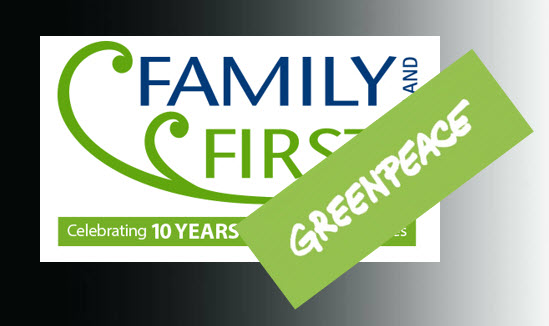Greenpeace & Family First Warn of ‘Chilling Effect’
 Media Release 17 May 2017
Media Release 17 May 2017
Family First NZ says that comments made by Greenpeace’s Russell Norman on the deregistration of Family First are correct and when charities from opposite sides of the social divide are sounding the warning, NZ’ers and politicians should be concerned.
“Russell Norman said this morning that the way the Charities Board is applying the law will reduce the scope for advocacy and that it’s having a chilling effect in the NGO sector. Norman said that every charity knows that if they speak out on an issue, they will be at risk of deregistration. Family First shares this exact concern,” says Bob McCoskrie, National Director of Family First NZ.
“I’m sure Russell Norman and I would disagree on many things, but one common conviction we share is that groups should have the right to speak up and to advocate on issues that are important to their constituency of supporters.”
The Charities Board was rebuked in the decision in the Wellington High Court in 2015 where they were told that “….Members of the Charities Board may personally disagree with the views of Family First, but at the same time recognise there is a legitimate analogy between its role and those organisations that have been recognised as charities.”
Justice Collins recognised the strength of Family First’s argument that its advocacy for the concept “…of the traditional family is analogous to organisations that have advocated for the ‘mental and moral improvement’ of society.…”
“This latest development regarding Family First will have a chilling effect for many charitable groups – both registered, deregistered and wanting to be registered – who advocate for causes, beliefs, and on behalf of their supporters, and often have to engage in political activity, not always through choice but through necessity,” says Mr McCoskrie.
“Family First will be fighting this decision all the way, not because we have to have charitable status to exist, but because of the threat it places on other charities and their freedom to speak and advocate on behalf of their supporters in a civil society.”
ENDS






